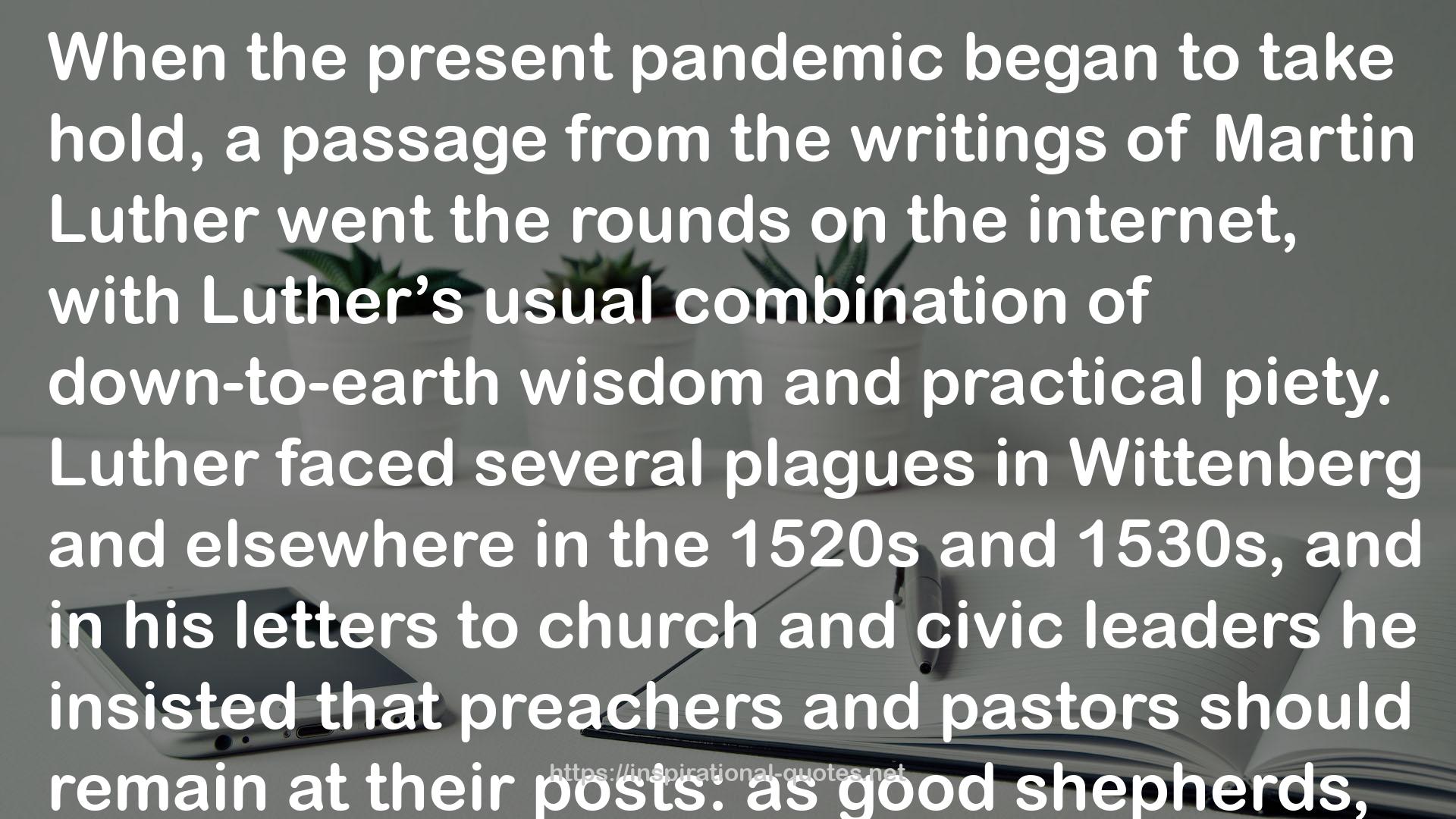" When the present pandemic began to take hold, a passage from the writings of Martin Luther went the rounds on the internet, with Luther’s usual combination of down-to-earth wisdom and practical piety. Luther faced several plagues in Wittenberg and elsewhere in the 1520s and 1530s, and in his letters to church and civic leaders he insisted that preachers and pastors should remain at their posts: as good shepherds, they should be prepared to lay down their lives for their sheep. Likewise civic and family leaders should only flee from a plague if they had made proper provision for the safety of those left behind. He offers advice which sounds as relevant today as it was five hundred years ago. Plagues, he says, may perhaps be messengers from God; but the right approach should be practical as well as faithful. This, he says, is how one should think to oneself: With God’s permission the enemy has sent poison and deadly dung among us, and so I will pray to God that he may be gracious and preserve us. Then I will fumigate to purify the air, give and take medicine, and avoid places and persons where I am not needed in order that I may not abuse myself and that through me others may not be infected and inflamed with the result that I become the cause of their death through my negligence. If God wishes to take me, he will be able to find me. At least I have done what he gave me to do and am responsible neither for my own death nor for the death of others. But if my neighbour needs me, I shall avoid neither person nor place but feel free to visit and help him. Luther: Letters of Spiritual Counsel, ed. T. G. Tappert (London: SCM Press, 1955), 242, from a letter of 1527. "
― N.T. Wright , God and the Pandemic: A Christian Reflection on the Coronavirus and Its Aftermath
